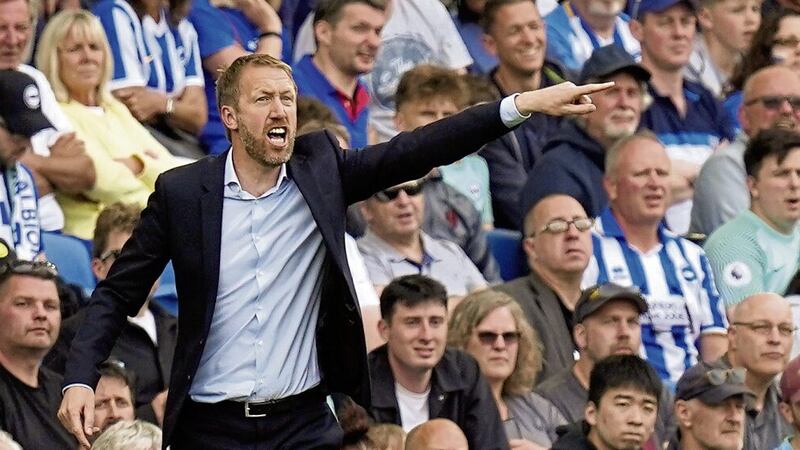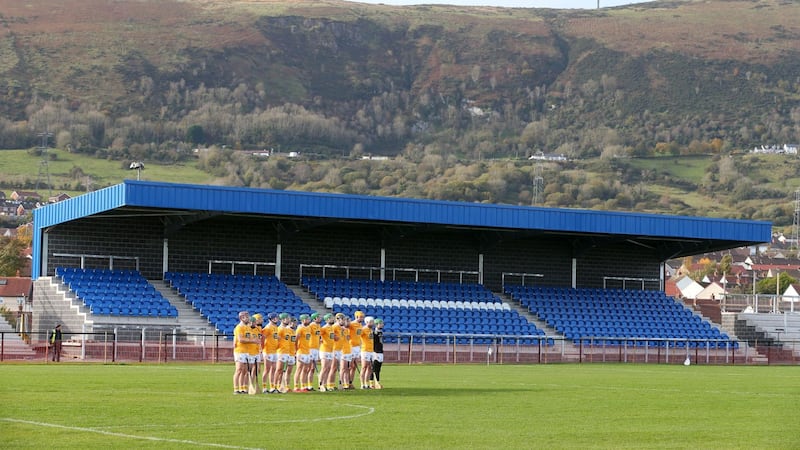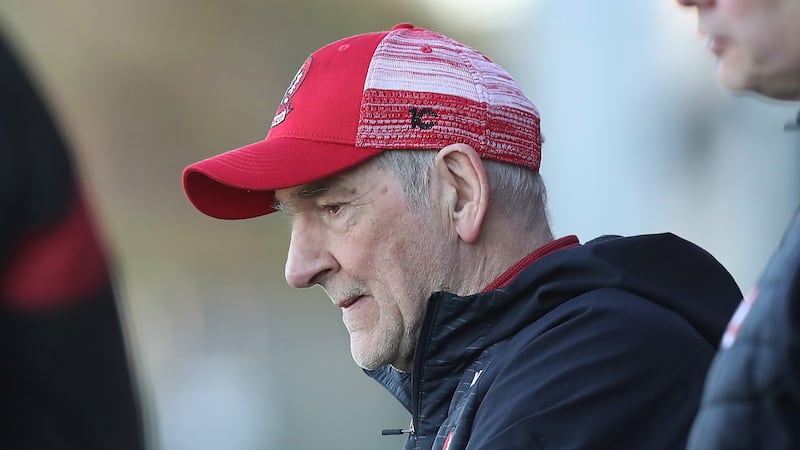THE first time Graham Potter had to stand in front of a group of his peers and demonstrate his coaching technique, it almost put him off for life.
In the grand pyramid of English soccer, he was a modest player. Birmingham City, Stoke City, West Brom, eight games for Southampton, those were the highlights of a career that also included spells at Northampton Town, York City and Boston United among others.
Somewhere in the middle part of it, he decided to go down the line of coaching.
Potter took on to start the UEFA ‘C’ Licence.
“I remember doing my C Licence and feeling really uncomfortable – I didn’t enjoy it at all. It was always standing up in front of your peers with the ‘stop, stand still’ and all that stuff – I didn’t enjoy it and didn’t feel like I was any good at it,” he recounted in an interview with FourFourTwo magazine in 2019.
He graduated that and took his ‘B’ licence. That was no better.
After the first session, he told his wife: “This is terrible, it feels awful, I’m no good at this.”
Last week, Graham Potter was named as the new Chelsea manager. He replaced Thomas Tuchel little more than a year after guiding them to a Champions League title, but such is the Premier League.
Potter will have to work harder to prove himself in the Chelsea dressing room than perhaps any predecessor of the Abramovic era bar Avram Grant, and at least he had the advantage of not being English.
But he’s earned the gig by taking a limited Brighton side into the upper reaches of the table. Last season, they lost just one game more than Manchester United.
This season, they had won at Old Trafford for the first time ever and were sitting fourth when Chelsea swooped in to steal their manager.
The reason Graham Potter had to work so hard to get his break is because he had no real name as a player.
He was, in his own words, “an average footballer”. So even though he had his licences, he had to go to Sweden for seven years and live in a location so cold that the city’s lake can freeze so solid that cars can drive across it.
Getting a foot out of the wilderness is a massive achievement in a sporting business where, to pick an example that obstructs the likes of Potter, Frank Lampard can be given the Chelsea job after finishing sixth in the Championship with Derby, leave Chelsea further back than where they started and still walk in the door at Everton with a God complex.
Potter’s saving grace was those licences.
There is very little about UEFA that is perfect and the coaching system isn’t either. But what it does do is offer a makeweight to coaches that they can place against the big names of their rivals in competition for big jobs.
We have no such system in the GAA.
Of the inter-county football managers in place for 2023, all but three of them played senior inter-county football.
Niall Carew, did play county hurling for Kildare as well as minor and U21 football.
Another is David Power, whose career extended no further than a game as sub goalie for Tipperary minors.
There were the likes of Colm Collins who played just a single season, or Andy McEntee who couldn’t force his way in from the fringes of the great Meath team in the late ‘80s, but they’d still experienced it.
That the other true exception is Jack O’Connor, who this summer won nothing fewer than his fourth All-Ireland as Kerry boss, tells a tale.
Despite the county’s position as footballing royalty, they have given coaches a chance.
Peter Keane never played for Kerry beyond U21.
Pat O’Shea won an All-Ireland club medal with Dr Crokes but didn’t play for the county.
It must take serious intestines, a complete absence of any form of the Impostor Syndrome from which Graham Potter suffered from in those first few sessions, for those men to stand in a room full of decorated footballers and try to teach them something they don’t know.
Most counties would have serious trouble selling their county team a manager that didn’t play county football.
But the two skillsets are very different. It’s one thing knowing how to play football and another thing showing other players how to do it.
The GAA does have a Level Two coaching course but the county board would be reading a man’s CV for a long time before they’d want to come to it.
Without a name as a player behind you, opportunities are very limited.
Yet in the current climate, with counties struggling already to fill their vacancies, a review of coaching standards at the top end is perhaps overdue.
You think particularly of Monaghan and Donegal at this stage. They’ve both hit a wall on external options and are left with internal options that are severely limited by the lack of a proper pathway.
Mark Counihan was the one candidate in Monaghan in a position to take the job but a number of the players poured scorn on the idea. They may come to regret that in time, given where they are at now.
There are coaches out there with the ambition and there are coaches out there with the quality.
What lacks is opportunity and any kind of regulation over the skillset required to manage an inter-county team.
The introduction of formal coaching qualifications within the GAA would help all the Graham Potters who are just dying to prove themselves.
Sometimes all you need is a chance.








